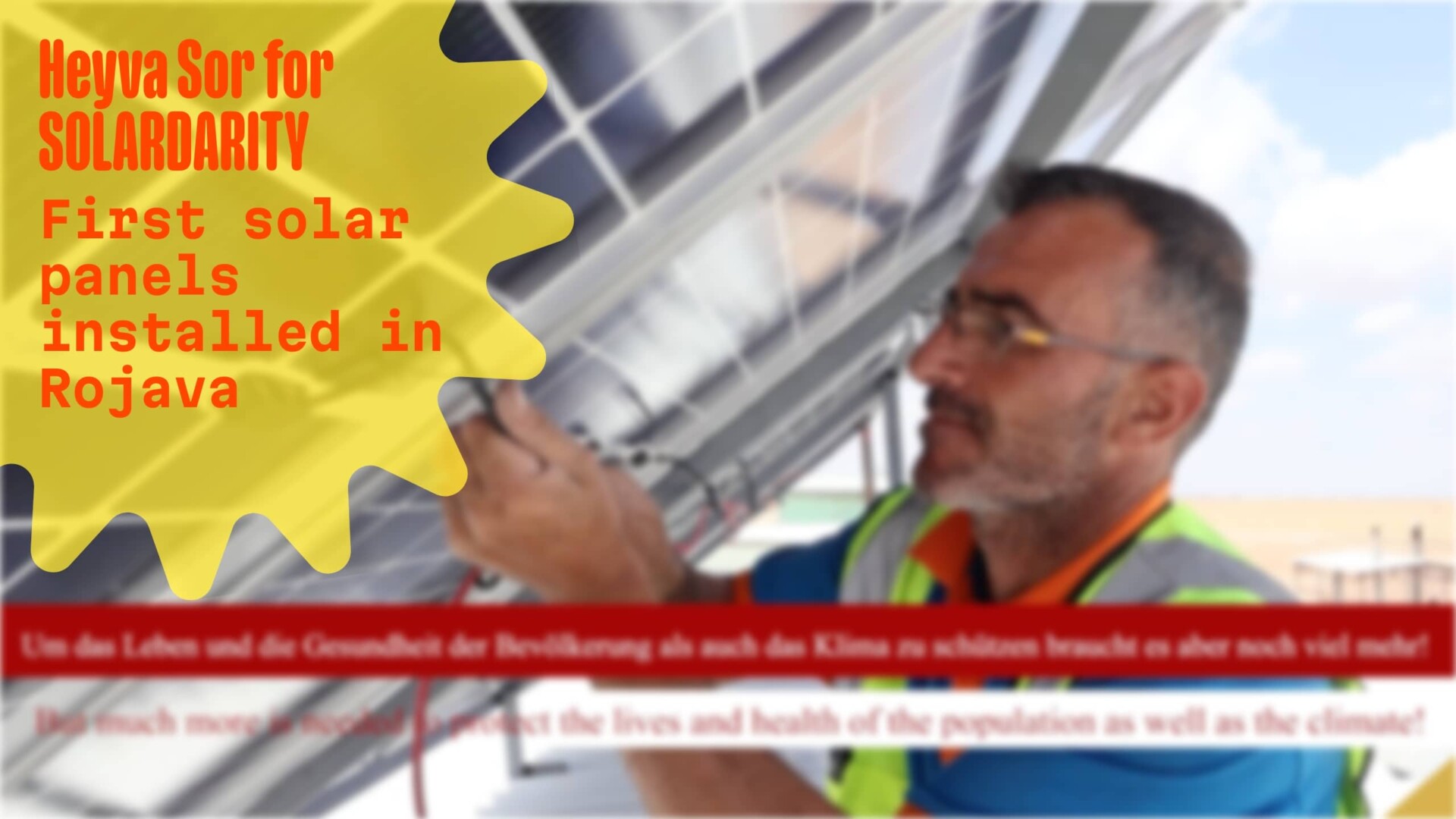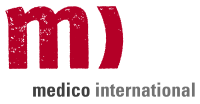We are collecting 1 million euro for solar panels in Rojava! For a democratic and ecological alternative in the Middle East.
now!

Our Aims
Energy crisis in Rojava
The Rojava Autonomous Region in northern and eastern Syria has been in existence for 12 years and is a glimmer of hope for democratic reconstruction in Syria. Since its foundation, Rojava has had to defend itself against numerous threats. In addition to the clashes with the Assad regime, the main threats have been the wars with Turkey and the so-called Islamic State.
Now, however, the autonomy project is facing existential challenges. The energy supply is threatening to collapse. Turkish air strikes have largely destroyed the power stations and substations in the region. Electricity is in short supply and is mostly generated by dirty diesel generators. The civilian population suffers from a lack of electricity and water on a daily basis, but agriculture - in a region already hardest hit by climate change - is also severely affected.
Clean energy as a solution
But we can do something. With clean energy from the sun in Syria. The installation of decentralised solar panels should help to supply municipal facilities, hospitals, schools and women's shelters with electricity.
We are therefore raising one million euros for solar panels to supply public facilities in northern and eastern Syria with sustainable electricity. In this way, we can make a difference and contribute to the further development of a democratic, gender-equitable and ecological alternative in the Middle East.
Let's make a difference together: let's send new energy to Rojava!






Campaign-Video

FAQ
Your donation will go to the Frankfurt-based aid and human rights organisation medico international e.v. medico works in north-east Syria with local partner organisations such as the Kurdish Red Crescent. They are very familiar with the social and political problems on the ground and the plight of the people. The medico project coordinators are in regular dialogue with the partners and also make on-site visits. The partner organisations not only keep you regularly informed about the progress of the project, but also provide you with detailed financial reports, which are subject to strict scrutiny at medico. This enables us to ensure that your donation is used where it is needed. This is also confirmed to medico by external institutions, for example the DZI donation seal of approval.
The partners in north-east Syria decide how the solar panels are distributed based on needs analyses and humanitarian principles. They know best where energy is most urgently needed. They have good contacts in the municipalities and cities and the responsible authorities of the autonomous self-administration. This prevents competition from arising.
In north-east Syria, solar panels are used in many places to compensate for the lack of electricity. Solar panels are therefore available locally, but many cannot afford them. There is sufficient experience in the installation and maintenance of solar systems and local companies that operate them. They are commissioned to install the solar panels and instruct our partners on how to maintain the solar systems, which are regularly inspected. The models usually come from Chinese production
Donations in kind and material donations have some disadvantages. They incur high costs for collection, sorting and often lengthy customs clearance in the destination country. They often do not meet local standards. Importing these goods can also weaken local and regional markets. To prevent this, they should be purchased in the disaster area itself and not imported. The best way to help is therefore to donate money. They make it possible to procure exactly what is really needed and guarantee that the relief supplies are also adapted to the local context. Monetary donations are therefore more efficient and – unlike donations in kind and materials – do not take up scarce resources such as transport, personnel and storage capacities in a disaster situation.
People who want to actively support the democratic process in North and East Syria (Rojava) on the ground are very welcome. No special training or particular skills are required, but they are of course helpful. Above all, it is about openness, taking responsibility and a willingness to learn.
In Rojava, there are various fields of work in which people from all over the world have been working for years, contributing their ideas and learning from society and the ongoing process. These range from social organising in communities and councils, ecological projects and cooperatives to press work. People with experience in computer science, technology, engineering or crafts as well as medical knowledge are also always welcome.
Anyone who is interested is welcome to contact us. We will forward your enquiry to the relevant contacts, who will get back to you as soon as possible.
However, it is not possible to work directly within the Solardarity-campaign in Rojava on the ground.
As an NGO, medico international has been working with local partners in Rojava for over 10 years. These partners are independent and have their own staff. The secondment of personnel is not possible for security security reasons.
medico international is recognised as a non-profit organisation. Your donation is therefore tax-deductible. The maximum donation limit for tax purposes is 20 per cent of your total income. Any amounts in excess of this can be carried forward to future years. Legally, your tax office only requires donation receipts for donations of 300 euros or more. We will automatically send you a donation receipt for donations of 50 euros or more and for your first donation. We need your full address for this. On request, we will of course also issue a donation receipt for donations of less than 50 euros. If you donate more than once a year, you can ask us for an annual donation receipt. If we notice that we receive regular donations, we will suggest that you request an annual donation receipt. In this case, we will write to you to ask for your consent. The annual donation receipt will be sent to you automatically at the beginning of the following year for the previous year
For many years now, medico has been awarded the DZI seal of approval, which is awarded following an annual audit by the German Central Institute for Social Issues (DZI). With this seal, the institute certifies that medico ‘works in accordance with its statutes. Advertising and information are truthful, clear and factual. The use of funds and fundraising as well as the financial situation can be traced on the basis of the accounts. The organisation and its bodies are monitored.’ As a scientific documentation and information centre, the DZI has many years of experience in auditing and assessing donation organisations.
In order to use donations responsibly, sensible and appropriate internal administration is just as essential as active fundraising. In recent years, the proportion of advertising and administration costs at medico has always been between 9% and 11%. The proportion of advertising and administrative costs fluctuates every year: it decreases when a large number of donations are received in a given year due to disasters or wars with corresponding media coverage and we subsequently implement large emergency aid projects with our partner organisations. In 2022, this share of costs was 9.4 per cent, which the DZI classifies as low.
Every year, medico provides a detailed account of all its work in the previous year in its annual report. It presents the focal points of our work, including an overview of all projects supported. You can see how much money we received in donations and public grants and for which countries and project areas our funds were used.
edico fulfils the requirements of the ‘Transparent Civil Society Initiative’. The signatories of this initiative undertake to disclose the objectives of their organisation, where the funds come from, how they are used and who makes the decisions. All this information can be viewed here.





